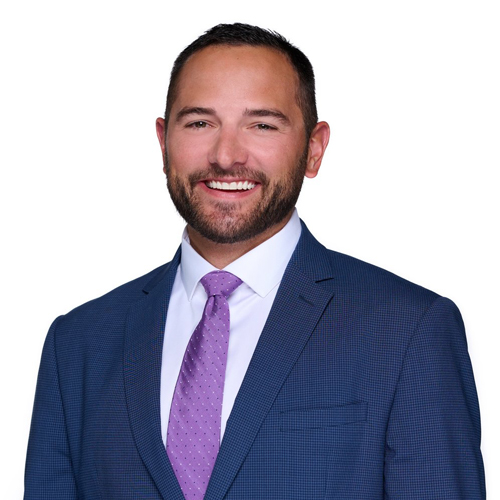For over 3,000 years, people have been practicing some form of spring cleaning. While the original reasons may always remain shrouded in mystery, we can confidently say that nowadays, it’s time to clean out the attic and basement, get rid of old stuff, and give your house a deep cleaning. As a financial advisor, I recommend going a step further and cleaning up your finances as well. Not only will you clarify your financial situation, but you’ll also feel that same sense of relief you get after putting your home in order.
Refresh Your Budget
A lot can happen in a year, and you may not always have the time to constantly update your budget, analyze your assets and liabilities, and figure out your cash flow. Perhaps you’ve gotten a raise and still haven’t implemented that fact into your budget. If you’re an adherent to the 50/30/20 rule or one of its variations, you’ll now have more money to spend overall. An alternative approach, especially beneficial if you’re running behind on your retirement savings, is to maintain your current lifestyle and direct any extra earnings into a retirement or brokerage account.
With the ever-increasing amount of monthly subscriptions, microtransactions, and in-app purchases, it’s easy to let monthly expenses get out of hand. A 2022 study found that consumers predicted their monthly subscriptions at about $88, but upon closer examination, they were actually at an average of $219!
The microtransaction market is booming and is expected to grow an additional 10% in 2024. If you’re confused by the term, microtransactions are in-game purchases that usually cost only a dollar or two to upgrade a character or purchase items within the video game. If you have children, be sure you have controls established so they can’t make these purchases without your approval.
Be aware of your own in-app purchases, as well. Many apps have content trapped behind paywalls, all psychologically designed to rid you of a dollar or two. Between subscriptions, microtransactions, and in-app purchases, you may be nickel-and-diming your budget much more than you realize.
Finally, inflation can distort the relative cost of your expenses over time, so it’s essential to adjust your budget accordingly. For example, if the price of groceries has increased significantly, you may need to allocate more money to food and less to other expenses.
Review Your Investment Accounts
As we age, we often accumulate more investment accounts, such as 401(K)s, IRAs, brokerage accounts, and even inherited versions of those. It becomes increasingly challenging to keep track of these accounts, rebalance them as necessary, and maintain a strategy that aligns with our financial plans and goals.
Even more worrying is the possibility of forgetting about an investment account. As of May 2023, it’s estimated that there are 29.2 million unclaimed 401(k) accounts worth roughly $1.65 trillion. These are astonishing numbers. If you have more than you can easily control, you may want to look into consolidating some of your accounts. Doing so will simplify the rebalancing process, give you a more straightforward bird’s eye view of your investment performance and tax statuses, and significantly reduce the chances of ‘forgetting’ about an account. Additionally opportunities to execute a Roth conversion may also become apparent during the review or consolidation processes.
Many Americans forget about Required Minimum Distributions (RMDs) precisely because they activate at the age when people start becoming more forgetful. A review may reveal that you have an RMD coming up or that you’re due one in the current year, and it’s time to start planning for it.
Finally, a review of your investment accounts may lead you to conclude that you should reconsider your financial goals, either positively or negatively. A careful adjustment of your financial plan can help you develop a new plan that more realistically aligns with the reality of your investment accounts.
Update Your Estate Plan
Let’s dispel some myths about estate plans first. Estate plans are not only for the extravagantly wealthy or those in their twilight years. An estate plan can be extremely valuable for people of all ages and perhaps even more so for those with families.
Since you last reevaluated your estate plan, your family may have experienced a birth, a death, the establishment or sale of a business, significant life changes, or an inheritance.
Reviewing your estate plan is crucial to ensure that your wishes are still accurately reflected in your will. This includes checking that your designated beneficiaries are up-to-date and align with your current desires. If you have minor children, it’s especially important to review your guardianship documents.
In addition to your will, it’s essential to review your health directive to ensure that it still accurately reflects your wishes in case you’re unable to make decisions for yourself. By taking the time to review these critical documents, you can have peace of mind knowing that your affairs are in order and your wishes will be carried out as intended.
Review Your Insurance Needs
Is your current life insurance coverage enough to support your dependents in your absence? Does your health insurance coverage align with your current and predicted needs in a cost-effective manner? In both cases, you may find that you either need better coverage or are paying too much – but you won’t know without a careful review.
One transition that particularly stands out is the age between retirement and Medicare. It’s not an issue if you retire after qualifying for Medicare. If you do, though, it’s recommended you fill that insurance coverage gap with a cost-effective solution.
Finally, one more form of insurance is seen as being more and more relevant to successful retirement planning – long-term care insurance. More Americans are spending more and more time in long-term care facilities, and prices are only going up. You’ll have significantly higher chances of not being denied for any preexisting conditions the younger you are when you look into long-term care insurance, as well.
In Conclusion
I doubt anybody particularly likes spring cleaning – but we all enjoy the outcomes of clean houses and decluttered spaces. Spring cleaning our finances is no different. It’s tedious and even emotionally challenging, but the results put our minds at ease.
Fortunately, you don’t have to go it alone. A financial advisor can alleviate the stress and confusion that tidying up our finances entails. A fiduciary advisor can help ensure you’re not paying too much in insurance premiums and investment fees and help you craft and stick to a custom financial plan no matter your stage of life.
If you’d like assistance getting your financial house in order, feel free to click the button below.













